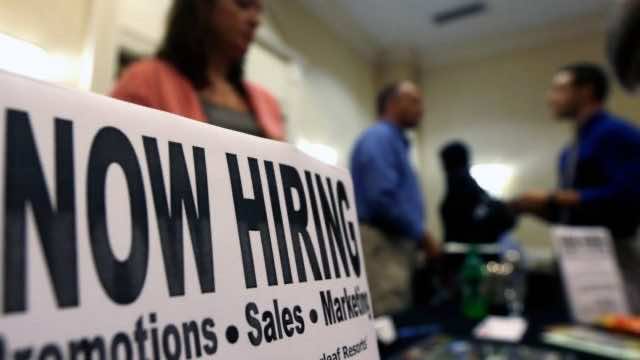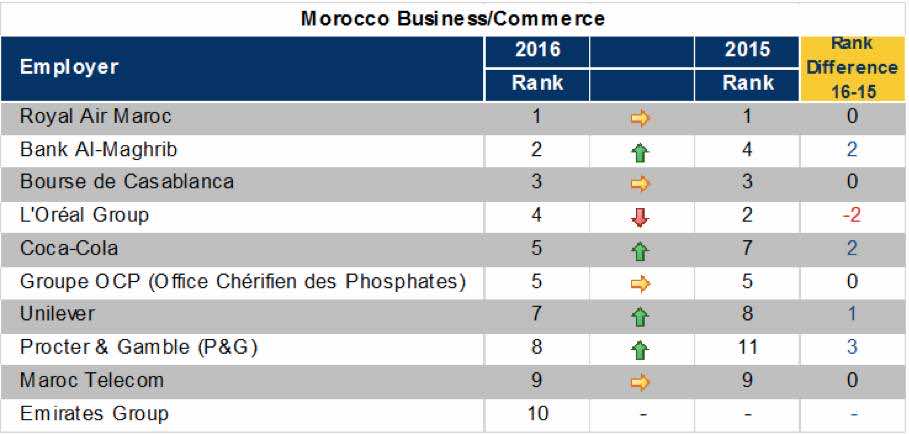
Scott Beckman

Stephen Crystal

Nathalie Daum

Farhan Naqvi

Berna Rhodes-Ford
The Richard Harris Law Firm sponsored the seventh annual Students With a Cause competition, which featured winners in the following categories:
• Video: Jordan Dailey (Palo Verde High School), for the video, “Don’t Text and Drive #JustInCase”;
• Work of Art: Janisse Badere (Chaparral High School), for artwork reinforcing the need for online safety;
• Short Story or Poem: Samantha Fabela-Andaya (Advanced Technologies Academy), for a short story about repairing damaged relationships;
• Website: Pablo Cortez (Advanced Technologies Academy), for his website discussing the dangers of texting and driving.
The four winners were each awarded $1,000 scholarships. Additionally, $500 was awarded to the school of each winning student.
• • •
Nathalie Daum is Dickinson Wright’s regional director of business development and marketing.
Pisanelli Bice was named among the country’s best litigation firms in rankings compiled by Chambers and Partners. It is one of three Nevada firms honored in Band 1 of the Chambers USA 2016 guide for general commercial litigation. James Pisanelli was ranked as a Band 1 attorney and Todd Bice was ranked as a Band 2 attorney for general commercial litigation.
Naqvi Injury Law was named one of America’s fastest-growing private companies in the 2016 Inc. 5000. The firm was founded by managing partner Farhan Naqvi.
McDonald Carano was recognized in the Chambers USA 2016 guide in the areas of general commercial litigation and commercial real estate. Seven partners were recognized: John Frankovich and Andrew Gabriel for real estate law, P. Gregory Giordano and A.J. “Bud” Hicks for gaming and administrative law, Sylvia Harrison for energy and environmental law, and Pat Lundvall and George F. Ogilvie III for commercial litigation.
Howard & Howard attorneys James Kohl and Jay Young were appointed to two-year terms as Nevada Supreme Court settlement judges.
Scott Beckmen and Stephen Crystal formed the Beckmen Crystal Law to focus on eSports and iGaming.
Labor and employment attorney Howard Cole, a partner in the Las Vegas office of Lewis Roca Rothgerber Christie, was ranked as one of most powerful labor lawyers in the United States, according to Human Resource Executive magazine.
Timothy O’Reilly of the O’Reilly Law Group was recognized in Super Lawyers Mountain States Rising Stars and Nevada Business Magazine Legal Elite, as well as the National Trial Lawyers Top 100 Trial Lawyers and the National Trial Lawyers Top 40 Under 40.
Berna Rhodes-Ford joined Brown Law Group as of counsel in the Las Vegas office.
Sherman & Howard attorney Kendra Follett is an elected fellow of the American College of Bond Counsel.
Dickinson Wright received ISO/IEC 27001:2013 certification, an indicator of security in regard to information technology.
• • •
Best Lawyers in America 2017
* Indicates that the attorney was designated “Lawyer of the Year” in that practice field.
Brownstein Hyatt Farber Schreck
• David Arrajj — gaming law
• Andrew Brignone — litigation-ERISA
• Jennifer Carleton — gaming law
• Sonia Church Vermeys — corporate law and gaming law
• Albert Kovacs — business organizations (including LLCs and partnerships), corporate law and mergers and acquisitions law
• Kirk Lenhard — bet-the-company litigation and commercial litigation
• Frank Schreck — gaming law
• Ellen Schulhofer — corporate law*
• Adam Segal — litigation-ERISA
• Angela Turriciano Otto — real estate law
Dickinson Wright
• Michael Feder — commercial litigation, litigation – banking and finance, litigation – intellectual property
• Gregory Gemignani — information technology law, IT outsourcing law
• Jennifer Ko Craft — trademark law
• John Krieger — trademark law
• Jeffrey Silver — administrative/regulatory law, gaming law, land use and zoning law
Fennemore Craig
• Richard Barrier — business organizations (including LLCs and partnerships)
• Richard Bryan — government relations practice; land-use and zoning law
• Michael Buckley — real estate law
• Chris Byrd — construction law; litigation – construction
• Douglas Cohen — personal injury litigation – plaintiffs; product liability litigation – plaintiffs
• Thomas Fell — bankruptcy and creditor debtor rights/insolvency and reorganization law; bet-the-company litigation; litigation – bankruptcy
• Lynn Fulstone — health care law
• Gary Goodheart — bet-the-company litigation; commercial litigation; litigation – banking and finance; litigation – real estate
• Samuel Lionel — bet-the-company litigation; commercial litigation; corporate law
• John Mowbray — commercial litigation
• James Wadhams — government relations practice
• Jeffrey Zucker — corporate governance law; corporate law; real estate law
Fisher Phillips
• Scott Mahoney — litigation — labor and employment
• Mark Ricciardi — labor law — management, litigation — labor and employment
Holland & Hart
• Robert Cassity — litigation — banking and finance
• Lance Earl — banking and finance law, commercial finance law, real estate law
• Lars Evensen — litigation – bankruptcy, litigation – construction
• Edward Garcia — government relations practice
• Gregory Gilbert — construction law and real estate law
• Bryce Kunimoto — litigation – banking and finance
• J. Stephen Peek — bet-the-company litigation, commercial litigation
• Patrick Reilly — commercial litigation
Howard & Howard
• W. West Allen — trademark law
• Thomas Davis II — commercial litigation
• Matthew Kreutzer — franchise law
• Robert Rosenthal — employment law – management; labor law – management; and litigation – labor and employment
• Gwen Rutar Mullins — construction law
• Jay Young — arbitration
Kolesar & Leatham
• Joseph Brown — government relations
• Nile Leatham — bankruptcy and creditor debtor rights/insolvency and reorganization law; commercial litigatioin; banking and finance law
• Robert List — government relations
Lewis Roca Rothgerber Christie
• Anthony Cabot — gaming law, information technology law
• Howard Cole — employment law – management, labor law – management, litigation – labor and employment
• Von Heinz — commercial litigation, litigation – ERISA, litigation – labor and employment
• Joel Henriod — appellate practice
• Scott MacTaggart — corporate law
• Michael McCue — copyright law, litigation – intellectual property, litigation – patent, trademark law*
• Daniel Polsenberg — appellate practice*, bet-the-company litigation, commercial litigation
• Karl Rutledge — gaming law
• Dan Waite — litigation – banking and finance
Marquis Aurbach Coffing
• Phillip Aurbach — arbitration, commercial litigation, litigation – real estate
• Terry Coffing — commercial litigation, First Amendment law and litigation-real estate
• Avece Higbee — real estate law
• Albert Marquis — real estate law
• Candice Renka — litigation – real estate
McDonald Carano
• Matthew Addison — commercial litigation and litigation – construction
• Robert Armstrong — corporate law, real estate law, tax law and trusts and estates
• Leo Bergin lll — litigation-real estate and real estate law
• Josephine Binetti McPeak — commercial litigation
• James Bradshaw — commercial litigation
• Kathleen Drakulich — energy law
• John Frankovich — litigation – real estate and real estate law*
• Andrew Gabriel — corporate law and real estate law
• Paul Georgeson — commercial litigation, construction law*, litigation – construction and personal injury/defendants
• Leigh Goddard — commercial litigation
• Sylvia Harrison — environmental law
• A.J. Hicks — gaming law
• Mark Knobel — corporate law, litigation trust and estates, nonprofit/charities law*, tax law and trusts and estates
• Jacquelyn Leleu — commercial litigation
• Pat Lundvall — commercial litigation and labor and employment litigation
• William Magrath ll — bet-the-company litigation, commercial litigation and litigation – construction
• Michael Melarkey — tax law and trusts and estates
• John Mulligan — trusts and estates*
• George Ogilvie lll — corporate law and litigation – construction
• Michael Pagni — corporate law and real estate law
• Amanda Perach — appellate practice
• Timothy Rowe — labor law – management*, workers’ compensation law – employers
• Thomas Sheets — energy law
• Jeff Silvestri — appellate practice and commercial litigation
• Scott Swain — trusts and estates
• Kaaran Thomas — bankruptcy and creditors rights/insolvency and reorganization law
• Amanda Yen — appellate practice
Pisanelli Bice
• Todd Bice — appellate, commercial litigation, litigation – First Amendment, litigation – land-use and zoning*, and litigation – mergers and acquisitions
• James Pisanelli — commercial litigation, bet-the-company litigation, construction law, litigation – construction, and litigation – real estate
• Debra Spinelli — commercial litigation
Schwartz Flansburg
• Frank Flansburg III — civil litigation, personal injury, business litigation
Snell & Wilmer
• Robert Anderson — corporate law, tax law
• Patrick Byrne — legal malpractice law – defendants
• Patricia Curtis — real estate law
• Richard Gordon — commercial litigation
• Robert Kinas — bankruptcy and creditor debtor rights / lnsolvency and reorganization law*, litigation-bankruptcy
• Leon Mead II — construction law, litigation-construction
• Bob Olson — bankruptcy and creditor debtor rights / lnsolvency and reorganization law, litigation-bankruptcy
• Mandy Shavinsky — land use and zoning law, real estate law*
• Stephen Yoken — construction law, real estate law
Solomon Dwiggins & Freer
• Alan Freer — trust and estate litigation*
• Mark Solomon — trust and estate law*
Mountain States Super Lawyers
De Castroverde Law Firm
• Jocelyn Cortez — immigration (Rising Star)
Marquis Aurbach Coffing
• Phillip Aurbach — dispute resolution, corporate dissolution, real property
• Christian Balducci — litigation, corporate, real property
• Chad Clement — litigation, corporate, real property
• Terry Coffing — litigation, real property, corporate
• Nicholas Crosby — employment, municipal liability, constitutional law
• Micah Echols — appellate, litigation, civil rights
• Jason Gerber — litigation, corporate, real property
• Tye Hanseen — litigation, corporate, real property
• Brian Hardy — business licensure, intellectual property, litigation
• Avece Higbee — homeowner association law, litigation, real property
• Jack Juan — construction, litigation, real property
• Albert Marquis — real estate, corporate, employment
• Scott Marquis — construction, litigation, real property
• Terry Moore — appellate, litigation, real property
• Candice Renka — litigation, corporate, real property
• Geri Tomich — asset protection, estate planning, guardianship/probate
• Liane Wakayama — litigation, corporate, probate/guardianships
O’Reilly Law Group
• Timothy O’Reilly — business litigation, gaming, personal injury – general: plaintiff (Rising Star)
Nevada Business Magazine’s Legal Elite
Marquis Aurbach Coffing
• Ben Auten, Christian Balducci, Terry Coffing, Jack Juan, Jared Moser, Cody Mounteer, Candice Renka, Liane Wakayama
O’Reilly Law Group
• Timothy O’Reilly
Go to Source












